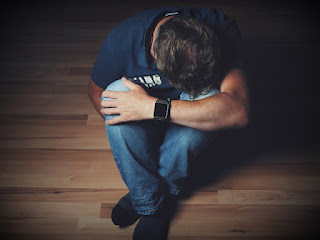All too often we scroll through social media comparing our lives to the "highlight reel" of our friends or even so called 'influencers'. Influencers are bad for our health and well-being. There I said it. Whether you're a social butterfly or an insular introvert, humans are social beings, and lackthereof has definite detrimental health effects.
One surprising area that social isolation has been shown to impact is blood pressure. Let's delve into the connection between the two.
The Direct Link: Social Isolation and Elevated Blood Pressure
Multiple studies have explored the relationship between social isolation and blood pressure, with most identifying a direct correlation between prolonged periods of isolation and elevated blood pressure. A study published in a journal found that people who reported feeling lonely and socially isolated had higher blood pressure readings than those who felt more connected. This remained true even after accounting for other factors such as age, weight, smoking, and alcohol consumption.
Why Does Social Isolation Impact Blood Pressure?
While the exact mechanisms are still being researched, several theories have emerged to explain the link between social isolation and hypertension:
Stress: Social isolation can be a major source of stress for many individuals. When the human body is stressed, it releases stress hormones like cortisol. Over time, these hormones can narrow and damage arteries, leading to higher blood pressure.
Lack of Social Support: Support from friends and family can act as a buffer against life’s stresses. Without this social net, isolated individuals may experience an increase in blood pressure as they try to navigate challenges on their own.
Behavioral Factors: Socially isolated people may be more prone to unhealthy habits that contribute to elevated blood pressure, such as poor diet, lack of exercise, or increased alcohol consumption.
Mitigating the Effects of Social Isolation on Blood Pressure
Understanding the potential effects of social isolation on blood pressure underscores the importance of finding ways to stay connected. Here are a few strategies to counteract the negative impact of isolation:
Stay Active: Regular physical activity can help lower blood pressure and reduce feelings of loneliness. Whether it’s a daily walk in the park or a virtual workout class, staying active can work wonders.
Engage in Social Activities (Even Virtually): With the rise of digital communication platforms, it’s easier than ever to stay connected with loved ones. Regular video calls, online group activities, or virtual clubs can help reduce feelings of isolation.
Seek Therapy: If you feel persistently lonely or isolated, consider talking to a therapist. Cognitive-behavioral therapy, in particular, can be effective in changing negative thought patterns related to isolation.
Community Involvement: Participate in local community events or volunteer activities. These can provide a sense of purpose and introduce you to new people, which can in turn reduce feelings of loneliness.
While the digital age has brought about many benefits, it has also posed unique challenges to our social well-being. The link between social isolation and elevated blood pressure is just one manifestation of how profoundly our social lives (or the lack thereof) can impact our health. By understanding this connection, we can take proactive steps to ensure that even in an era dominated by screens and virtual connections, our physical well-being remains a top priority. It’s crucial, now more than ever, to foster genuine connections – for the sake of our hearts, both metaphorically and literally.

